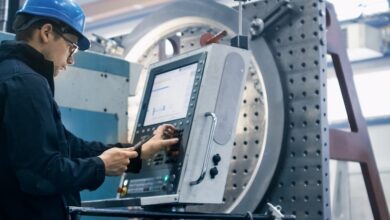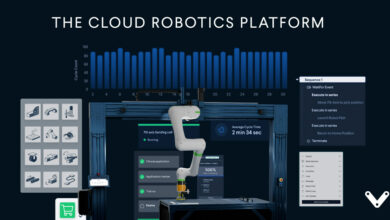ABB releases OmniCore platform for control across its robotics line
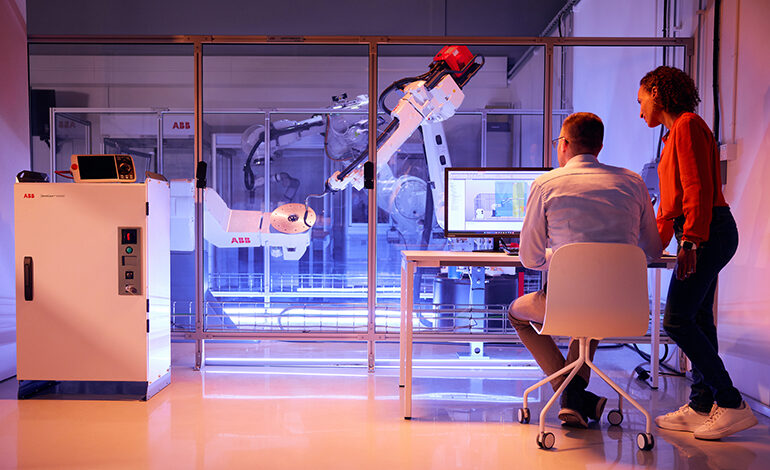
|
Listen to this article |
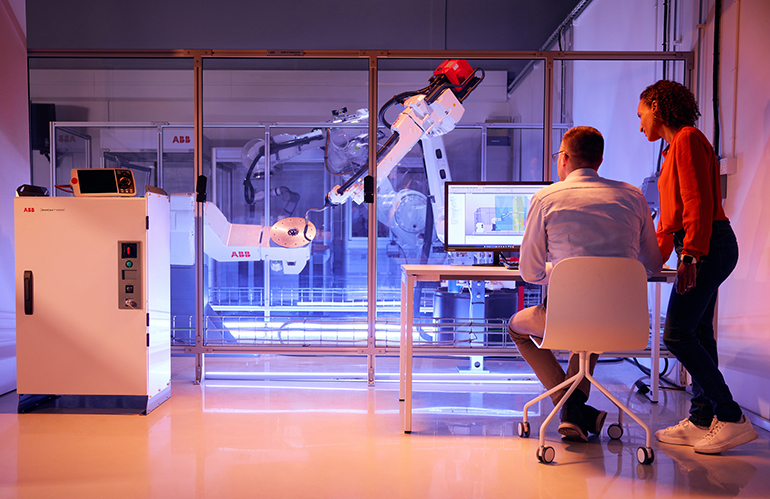
Operators use OmniCore V400XT to control a large robot with Robot Studio. Source: ABB Robotics
Thanks to advances in cloud computing, perception technology, and artificial intelligence, industrial and other robots are becoming smarter and more capable. ABB Robotics today launched its next-generation OmniCore platform, which can now control most of its automation line.
“For our customers, automation is a strategic requirement as they seek greater flexibility, simplicity, and efficiency in response to the global megatrends of labor shortages, uncertainty, and the need to operate more sustainably,” said Sami Atiya, president of ABB’s Robotics & Discrete Automation Business Area. “Through our development of advanced mechatronics, AI, and vision systems, our robots are more accessible, more capable, more flexible, and more mobile than ever.”
“But increasingly, they must also work seamlessly together, with us, and each other to take on more tasks in more places,” he added. “This is why we are launching OmniCore, a new milestone in our 50-year history in robotics; a unique, single control architecture – one platform, and one language that integrates our complete range of leading hardware and software.”
ABB Robotics, which has offices in Zurich and Auburn Hills, Mich., noted that OmniCore is the product of more than $170 million in investment. The unit of ABB Group called it “a step change to a modular and futureproof control architecture that will enable the full integration of AI, sensor, cloud, and edge computing systems to create the most advanced and autonomous robotic applications.”
While ABB has offered OmniCore since 2018, its plan was always to make it its unified control platform, explained Marc Segura, division president of ABB Robotics. “Now we are in our pivotal moment where we are launching it to the cover almost our entire robotics portfolio,” he told The Robot Report.
 Submit your presentation idea now.
Submit your presentation idea now.
OmniCore offers speed and accuracy
ABB Robotics said OmniCore delivers robot path accuracy at a level of less than 0.6 mm, and it can control the motion of multiple robots running at speeds of up to 1,600 mm per second (3.5 mph). This builds on ABB’s experience with automotive manufacturing. It also opens opportunities for precision automation in areas such as arc welding, assembly of mobile phone displays, gluing, and laser cutting.
“Our automotive customers are extremely competent and helped push the boundaries of what is possible,” Segura said. “OmniCore also complies with and exceeds the most stringent cybersecurity standard and is future-proof for AI and digitalization.”
He claimed that the updated platform enables its robots to operate up to 25% faster and to consume up to 20% less energy compared with its previous controller.
Platform covers hardware, software ecosystem
OmniCore is built on a scalable, modular control architecture that offers a wide array of functions, making it suitable for new industries embracing automation, such as biotechnology and construction, said ABB. It also includes more than 1,000 hardware and software features to help customers design, operate, maintain, and optimize operations.
Segura cited software features such as Robot Studio, OptiFact, Absolute Accuracy, and PickMaster Twin, as well as hardware options spanning from external axis and vision systems to fieldbuses.
“The OmniCore difference is its ability to manage motion, sensors, and application equipment in a single holistic unified system,” he said. “Our new, next-generation platform is more than a controller. It is the backbone of value creation, which includes a complete, integrated software ecosystem.”
“For example, OmniCore enables automotive manufacturers to increase production speed, offering tremendous competitive advantage, increasing press-tending production from 12 to 15 strokes per minute to produce 900 parts per hour,” Segura said. “Some of these applications are now available even as pre-integrated configurations, enabling our systems integrators to reduce commissioning times even further.”
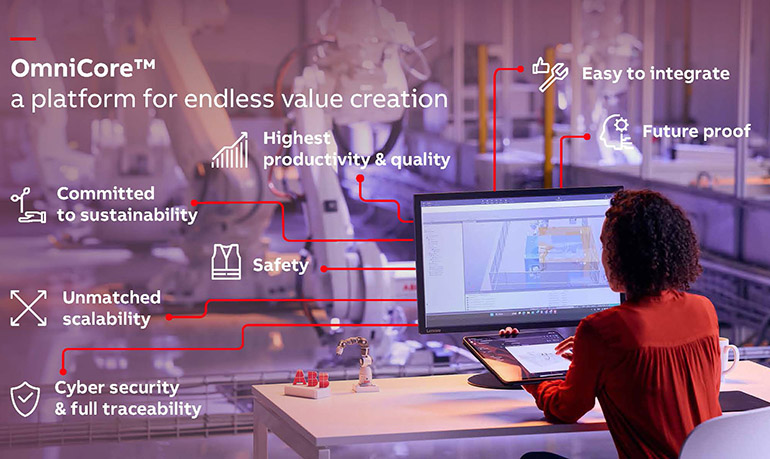
ABB says OmniCore offers seven benefits for robotics deployment and management. Source: ABB Robotics
ABB plans for compatibility across its robots
ABB said its history of robotics innovation began with “the world’s first microprocessor-controlled robot” in 1974. It launched the RobotStudio software in 1998 and acquired Sevensense in 2024 to bring industry-leading AI-based navigation technology to its autonomous mobile robots (AMRs) purchased with ASTI in 2021.
OmniCore replaces ABB Robotics’ IRC5 controller, which will be phased out in June 2026. The company plans to continue to support its customers with spare parts and services through the remaining lifetime of the robot. Is new hardware needed to upgrade?
Existing users need only to make some minimal re-engineering for connectivity, wiring, and the customized user interface on the FlexPendant, replied Segura. “We are still compliant with all the sensors used on IRC5 and have added more opportunities on the OmniCore platform,” he said.
In addition to managing motion, sensors, and application equipment, OmniCore will be able to manage ABB’s collaborative robots, acknowledged Segura. “We also plan to run all our AMRs and mobile manipulators to run on OmniCore in the near future,” he said.
OmniCore is now available, and ABB is taking orders. The company is hosting a virtual conference for the new OmniCore platform at 10:00 CEST (4:00 a.m. EDT) on June 4, 2024. It will be available to those who register after the launch event.
